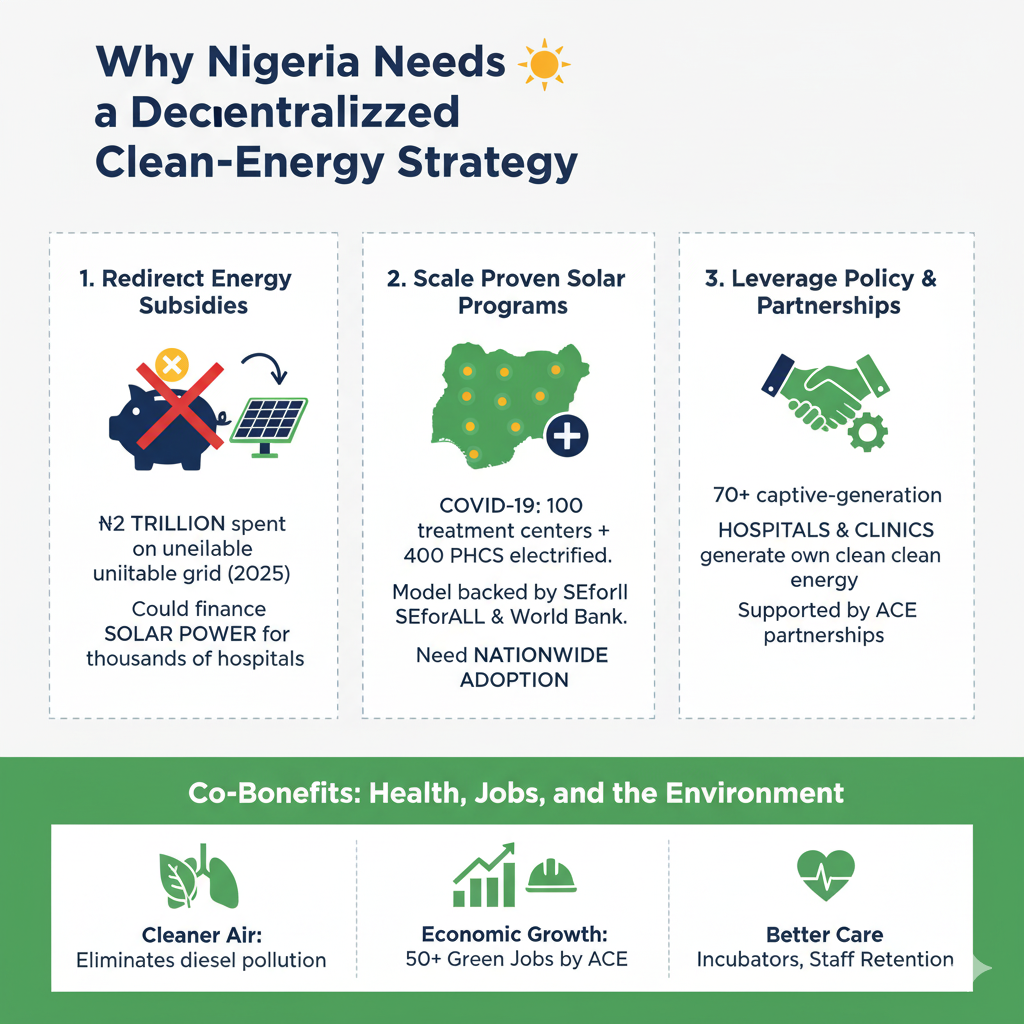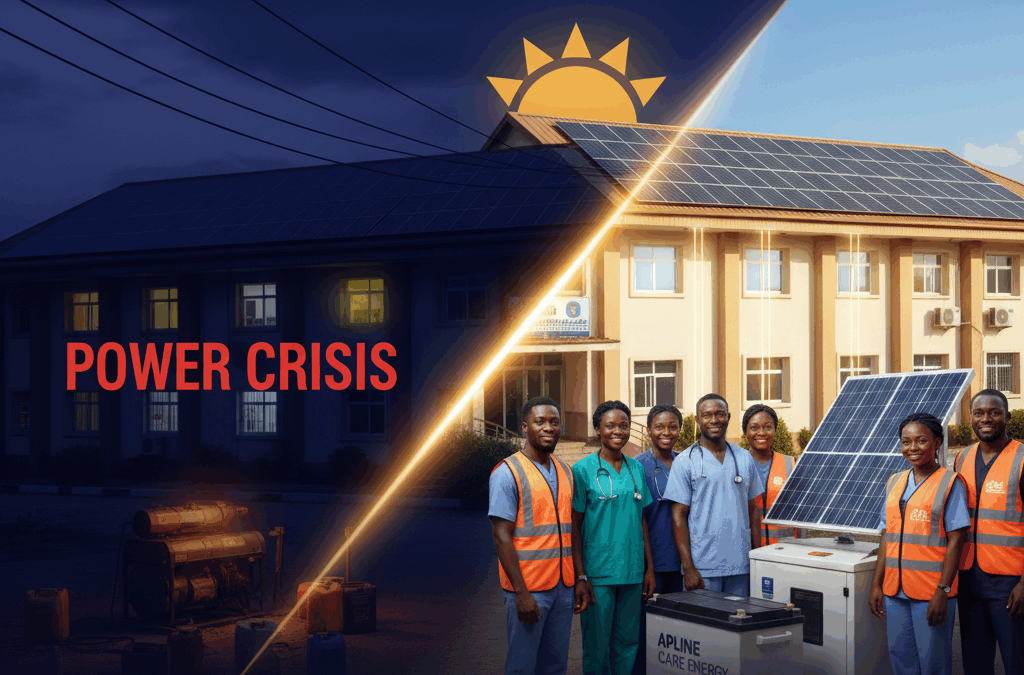Nigeria consumes just 33 TWh of electricity annually for over 220 million people—far below global averages. Discover how solar energy, led by Apline Care Energy, is revolutionizing healthcare power infrastructure across the country.
How Much Electricity Does Nigeria Really Need in 2026?
While Europe’s electricity demand hovers around 3,280 TWh, Nigeria—a country of over 220 million people—consumes a mere 33 TWh, and that number declined by 3% in 2025. Despite a surge in energy awareness between 2021 and 2023, Nigeria remains one of the most energy-deficient nations globally.
Only 45% of the population has grid access, and even then, most endure power for just four hours daily, often going several days without electricity. This is not merely an infrastructure issue—it’s a public health emergency.
Power Shortages & Healthcare: A Crisis Beyond the Grid
Hospitals are the heartbeat of any functioning health system, yet in Nigeria, many operate in the dark—literally.
- Tertiary hospitals face frequent blackouts, compromising critical services like surgeries, ventilators, laboratory diagnostics, and neonatal care.
- An alarming 40% of Nigeria’s 30,000 Primary Healthcare Centres (PHCs) have no electricity at all.
- Even those with some access average 6–10 hours daily, far below operational needs.
- Only about 6,000 PHCs are fully functional, with unreliable power being a top reason.
Institutions like Lagos University Teaching Hospital (LUTH) have resorted to installing independent power plants, such as a 5.8MW gas-fired generator, just to stay operational. But this isn’t sustainable.
Solar Energy: Lighting the Path to Healthcare Resilience
Thankfully, Nigeria’s energy crisis has found a worthy contender: Solar Power—and companies like Apline Care Energy (ACE) are at the forefront of this transformation.
- A $77 million World Bank project is already powering over 500 healthcare facilities using solar PV, batteries, and hybrid systems worldwide.
- Mini-grids and stand-alone solar systems are making maternal care, immunization, and emergency services possible in rural areas.
- Across Sub-Saharan Africa, 100,000+ health centers suffer unreliable electricity. Solar energy is cheaper, cleaner, and more reliable over time.
ACE’s tailored approach to Energy-as-a-Service (EaaS)—where healthcare facilities pay monthly rather than face high upfront costs—makes reliable energy accessible, scalable, and sustainable.
Why Nigeria Needs a Decentralized Clean-Energy Strategy
1. Redirect Energy Subsidies
In 2025 alone, Nigeria spent ₦2 trillion subsidizing the unreliable grid—more than four times the ₦450 billion budgeted. That same money could finance solar power for thousands of hospitals, cutting diesel dependency and improving outcomes.
2. Scale Proven Solar Programs
During the COVID-19 pandemic, 100 treatment centers and 400 PHCs were electrified through geospatial planning. This model—backed by SEforALL and the World Bank—needs nationwide adoption.
3. Leverage Policy & Partnerships
With 70+ captive-generation licenses granted in late 2024, now is the time to allow hospitals and clinics to generate their own clean energy, backed by supportive regulations. ACE is actively partnering with healthcare providers to bring these projects to life.
Co-Benefits: Health, Jobs, and the Environment
- Cleaner Air: Solar eliminates diesel pollution in wards, labs, and urban clinics.
- Economic Growth: ACE’s projects create green jobs—over 50 and growing energy officers now support system maintenance and installations.
- Better Care Delivery: Reliable energy powers diagnostics, incubators, radiotherapy machines, and improves staff retention in rural areas.

Apline Care Energy: Powering Nigeria’s Health Future
At Apline Care Energy, we specialize in renewable energy solutions designed exclusively for healthcare facilities. From primary health centres to teaching hospitals, we build resilient solar infrastructure that powers essential services—24/7, 365 days a year.
Our Energy-as-a-Service (EaaS) model eliminates high upfront costs, making clean power affordable and easy to scale across Nigeria’s healthcare landscape.

Final Word: From Crisis to Opportunity
Nigeria’s electricity deficit may seem overwhelming, but the solution is already within reach. With the right mix of policy support, strategic investment, and private-sector innovation, we can turn power shortages into a success story—starting with the health of our people.
Let’s power a healthier Nigeria.
Interested in powering your hospital or clinic with reliable solar energy?
Email us at energy@aplinegroup.com to get started.


Recent Comments